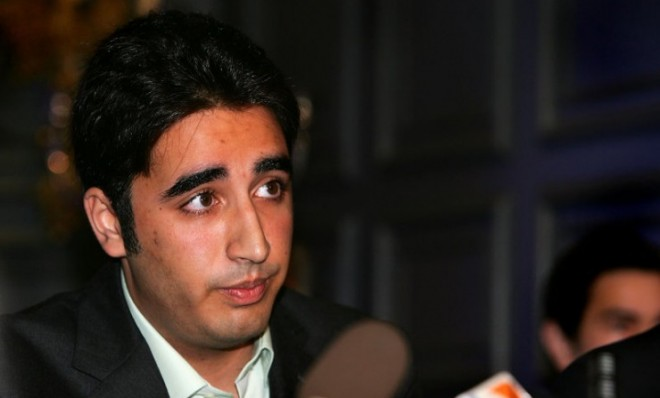Pakistan Revives Kashmir Issue, Bilawal Bhutto Now Stakes Claim
'When I raise Kashmir, the entire Hindustan screams. They know when a Bhutto speaks, they (Indians)

NEW DELHI: Pakistan revs up the Kashmir issue again, as relations with India sink into the rigid morass of suspicion and distrust. The Pakistan Peoples Party has joined the ruling party with Bilawal Bhutto again shouting amidst thunderous applause at a rally, “ We will take back Kashmir from India.”
“When I raise Kashmir, the entire Hindustan screams. They know when a Bhutto speaks, they (Indians) have no answer,” Bilawal Bhutto said in what is a clear strategy by the Pakistan Army and the political parties to bring Kashmir back on the agenda.
Bhutto’s statement follows the letter by National Security Advisor Sartaj Aziz to United Nations Secretary General Sartaj Aziz asking for the revival of the UN resolutions on Jammu and Kashmir. The effort was to send out a loud and clear signal to India and the global community on Kashmir.
These statements have not evoked any response from Jammu and Kashmir, where the people are caught up in rehabilitation efforts after the floods. Also the Kashmiri youth by and large is alienated from both New Delhi and Islamabad, and is not particularly enthusiastic about becoming fodder in the bilateral animosities between the two countries.
India’s Ministry of External Affairs reacted to Bhutto’s statement saying that this was “far from reality which takes us back into the past century.” MEA spokesperson Syed Akbaruddin said, “ we are in the process of looking forward and looking forward does not mean that our borders will be changed. We made it very clear that as far as we are concerned, the integrity and unity of India is non negotiable.”
This is his second statement on Kashmir in as many months. Earlier he had raised eyebrows not just in India but in Pakistan with his, “I will take back Kashmir, all of it, and I will not leave behind a single inch of it because, like the other provinces, it belongs to Pakistan.”
Bilawal Bhutto is being projected within the PPP as the new leader for the 2018 elections. And while this rhetoric on Kashmir is clearly targeted at gaining support, the issue is being revived as relations between India and Pakistan deteriorate. It remains to be seen whether there is any effort by respective Prime Ministers Narendra Modi and Nawaz Sharif on the sidelines of the SAARC summit in Nepal next month with a meeting, particularly as Assembly elections are now over for the year. Unless of course the polls are held in Jammu and Kashmir and Delhi, for which decisions are awaited.
The political exploitation of the Jammu and Kashmir issue has been perfected by successive governments in both India and Pakistan over six decades. Despite the repeated demand from the state to be included in the resolution of the Kashmir issue that India agreed to as an important item in the composite dialogue agenda, both sides have successfully blocked it. Pakistan pays token lip service to this, but is hesitant to open the issue beyond a point lest the demand for a referendum in Jammu and Kashmir in its entirety, including Gilgit and Baltistan, gathers pace. India has blocked this as in its view the state is an integral part, and hence the government of India in New Delhi speaks for Jammu and Kashmir as well.



